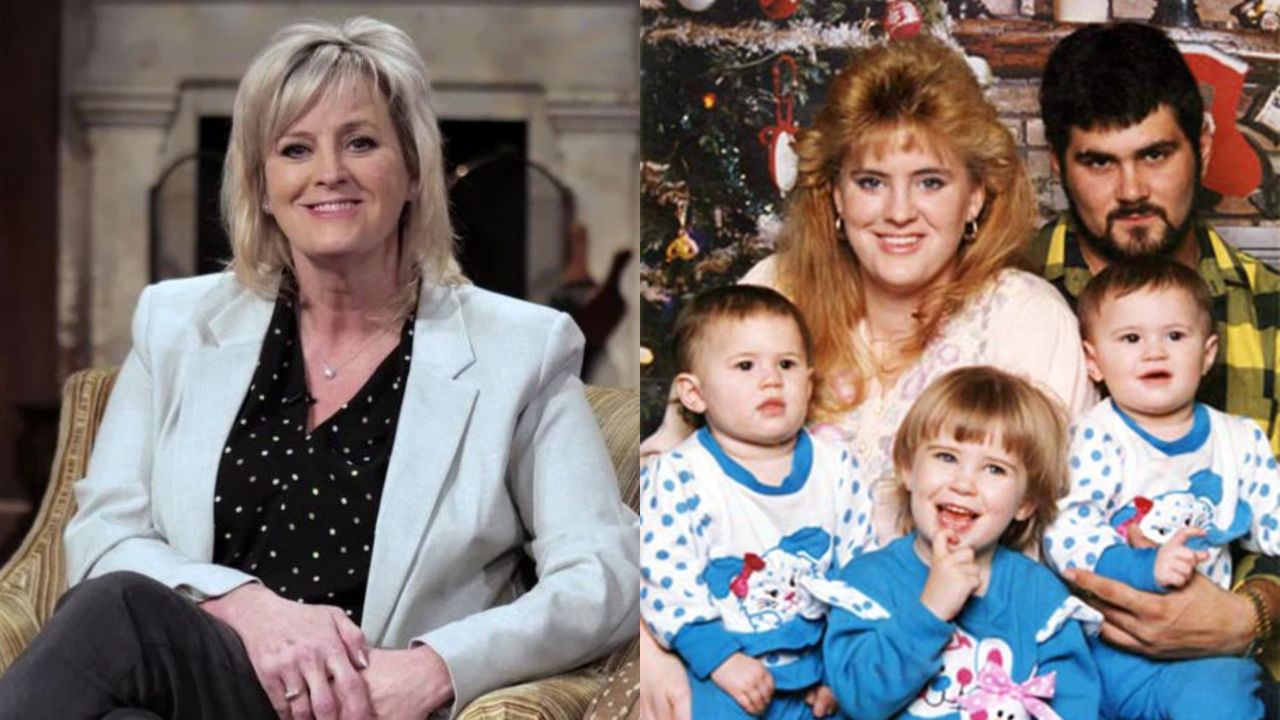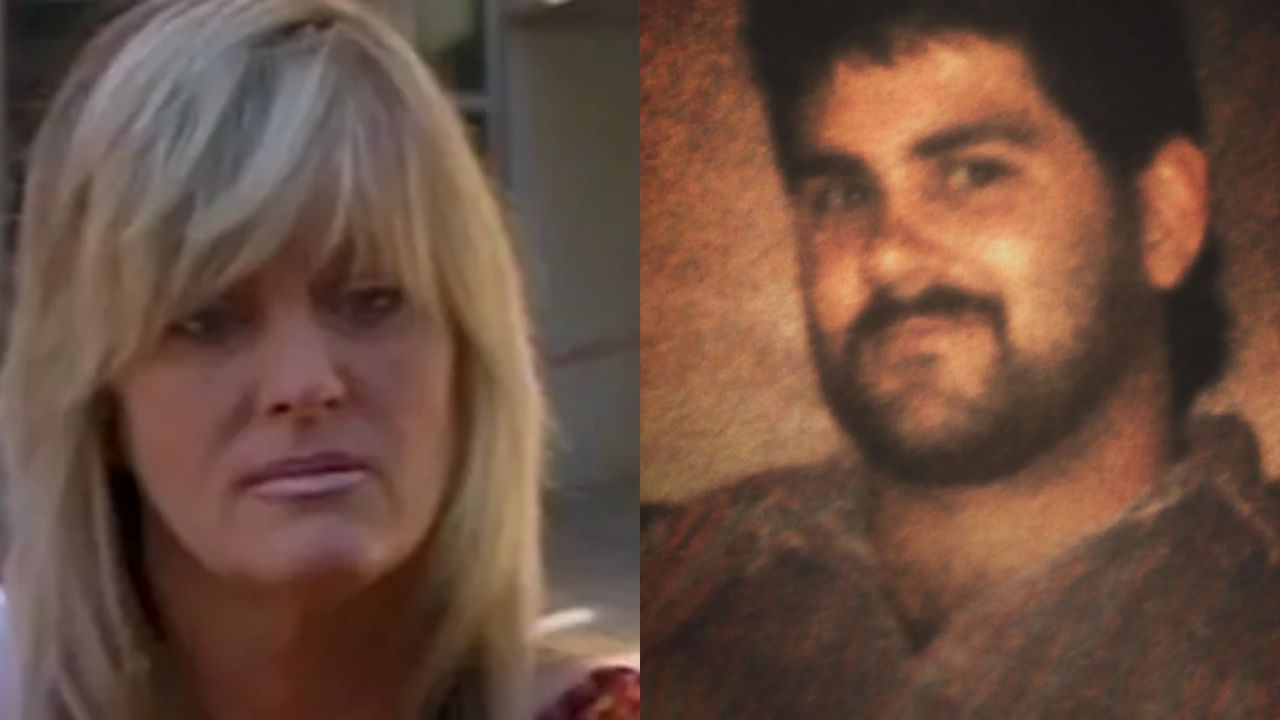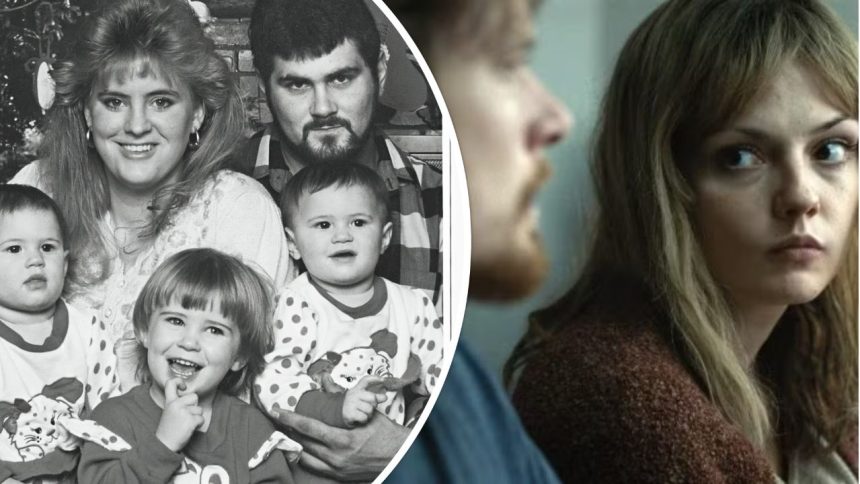In the early morning hours of December 23, 1991, the Willingham home in Corsicana, Texas, became engulfed in flames. Cameron Todd Willingham, a 23-year-old father, managed to escape, but his three young daughters—two-year-old Amber and one-year-old twins Karmen and Kameron—perished in the fire. His wife, Stacy Kuykendall, was not at home at the time; she had left to go Christmas shopping.
What followed was a legal and emotional battle that lasted over a decade, culminating in Willingham’s execution and an enduring controversy surrounding his guilt or innocence. But the story of Stacy Kuykendall is one of its own—a woman caught between grief, conflicting emotions, and a justice system that ultimately sealed her children’s fate along with her husband’s.
Cameron Todd Willingham’s Wife, Stacy Kuykendall, and Three Children: A Family Destroyed by Fire and Controversy

Stacy and Todd had been together for about four years when they married, just months before the fire. Their relationship was complicated from the beginning, marked by poverty, turmoil, and, according to Stacy, episodes of domestic abuse. Todd was known for his heavy drinking and unfaithfulness, and Stacy later admitted that he had hit her, even during pregnancy. Yet, despite these issues, she initially stood by him when he was accused of setting the fire that killed their children. During his 1992 trial, she testified that Todd would never hurt their daughters, stating that while their marriage had its struggles, he loved their children deeply. But over the years, her stance changed drastically.
At the heart of the prosecution’s case against Todd was the assertion that he had deliberately set the fire to murder his daughters. Fire investigators, using now-discredited forensic methods, claimed they found evidence of an accelerant, leading them to believe the fire was an act of arson. A jailhouse informant, Johnny Webb, testified that Todd had confessed to him, a claim that was later recanted. Despite these questionable pieces of evidence, Todd was convicted of capital murder and sentenced to death. Throughout the trial and even after their divorce in 1993, Stacy maintained her belief in his innocence. But as the execution date approached, something shifted.
In 2004, just weeks before Todd’s execution, Stacy publicly changed her stance. She declared that Todd had confessed to her during a final visit on death row, admitting that he set the fire because she had threatened to leave him the night before. This claim directly contradicted her earlier statements and raised questions about whether she was being pressured or influenced by external forces. For years, she had defended Todd, writing letters on his behalf and speaking out against his conviction. But suddenly, his wife asserted that he was a monster who had murdered their children and that he deserved his fate.
This dramatic shift in perspective fueled an already controversial case. In 2009, five years after Todd’s execution, an investigative report by The New Yorker’s David Grann cast serious doubt on the evidence that had convicted him. Fire experts concluded that the original investigation had been based on outdated, flawed science. Furthermore, the jailhouse informant admitted that his testimony had been fabricated in exchange for leniency in his own case. These revelations led many to believe that Texas had executed an innocent man. Stacy, however, stood firm in her belief that Todd was guilty.
Stacy Kuykendall’s life after Todd’s execution took a different path. She focused on honoring the memory of her daughters in her own way, sharing stories about them on social media, carrying their pictures with her wherever she traveled, and dedicating herself to helping other grieving parents. From the Bahamas to Pike’s Peak, from Mexico to New York, she made it a point to take her daughters with her in spirit. She also involved herself in charity work, traveling to Guatemala with the House of Healing Foundation to assist impoverished communities. Along the way, she became a devout Christian and was baptized in 2022.

Despite the continuous re-examinations of Todd’s case, Stacy has never wavered in her stance since 2004. When Todd’s family petitioned for a posthumous pardon, she publicly opposed it, arguing that his conviction was justified and that reopening the case only dishonored their daughters’ memory. In 2012, she gave an interview to The Huffington Post, condemning efforts to clear his name. She continued to speak out against the portrayal of Todd in media, especially in the 2018 film Trial by Fire, which she felt was one-sided and overly sympathetic to him.
Stacy’s perspective, however, has been questioned by many who point out the inconsistencies in her statements over the years. In the immediate aftermath of the fire, she defended Todd, expressing her belief that he was incapable of such an atrocity. It was only years later, under the weight of time and public scrutiny, that she reversed her position. Whether this change was the result of new realizations, personal guilt, or external pressure remains a matter of debate.



